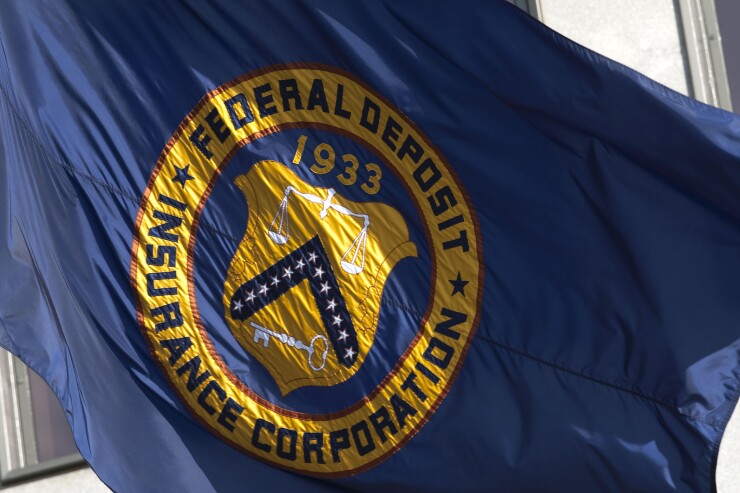WASHINGTON — A liberal think tank influential in the Biden administration has outlined bank mergers, climate change and digital assets as its high-level priorities for banking regulators now that the Biden administration’s regulatory roster is mostly filled out.
With the Senate Banking Committee

The Center for American Progress released
On climate change, the report urges bank regulators to rely more heavily on supervisory guidance to address risks, a channel that’s less formal than pushing for legislation or official rulemakings. The recommendation follows a
Phillips and Kress said that climate risks to banks show up in credit risk, market risk and operational risks — the same kinds of factors that banking regulators already consider.
“Likewise, the tools regulators have to ensure banks remain safe and sound in the face of climate risks are also similar to those they regularly use,” according to the Center for American Progress report.
Recommendations around cryptocurrency are less specific, asking that banking regulators “should do more to detail the risks that banks may face from various crypto activities, help banks mitigate the risks that come from providing crypto custody services, and determine whether or how bank-issued stablecoins may be afforded deposit insurance.”
The report also calls on banking agencies to roll back rules that would allow more nonbanks to receive charters.
Phillips and Kress ask the Federal Deposit Insurance Corp. to repeal standards for the corporate parents of industrial loan companies that were
The authors also ask the Office of the Comptroller of the Currency to rescind a Trump-era policy that said it would provide special-purpose national bank charters to fintechs (although the report notes that no such charters have been granted) and announce that the agency won’t grant charter to institutions that don’t take deposits, make loans and facilitate payments.
“Fintechs that issue cryptocurrencies could benefit from having access to the Federal Reserve’s payment system, for example, while fintechs that use investor capital to make consumer loans could benefit from a national bank charter that preempts state consumer protection laws,” the report says. “At the same time, these fintechs generally do not accept consumer deposits and would, accordingly, not face many of the same regulations faced by banks that do.”
The report also calls on Biden’s regulators to strengthen the regulatory framework for banks.
The final version of the Community Reinvestment Act, which banking regulators
On bank mergers, the report calls on the Fed and the OCC to collaborate with the Department of Justice and the FDIC to “strengthen merger oversight,” arguing that it’s “long past time” for banking agencies to revisit their merger-related policies.
Phillips and Kress noted acting Comptroller Michael Hsu’s
The report also urges banking regulators to roll back Trump-era “tailoring” of Dodd-Frank rules, to strengthen stress tests and to finish some pending items from Dodd-Frank, such as adopting rules governing incentive-based compensation at large financial institutions.






